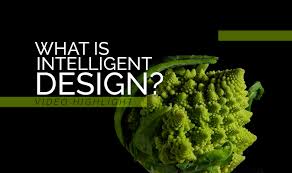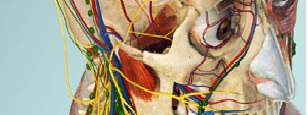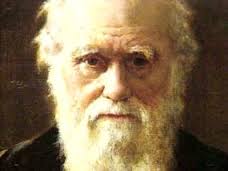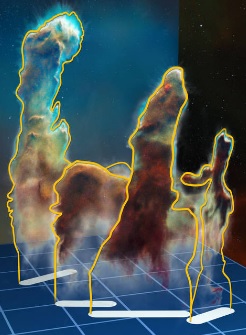 I never came away from an autopsy without reflecting on the marvelous design of the human body. I don’t know how many autopsies I attended over the years as a cop and a coroner. Lots. It’s not something you score. But I always looked at postmortems as a scientific—almost spiritual—systematic exercise in examining human design.
I never came away from an autopsy without reflecting on the marvelous design of the human body. I don’t know how many autopsies I attended over the years as a cop and a coroner. Lots. It’s not something you score. But I always looked at postmortems as a scientific—almost spiritual—systematic exercise in examining human design.
They’re twelve major systems in your anatomy—all interlinked to ensure your survival. Remove any system (except maybe your reproductive one) and you’ll die. And these systems go about their intermingling business—day after day—year after year—without you having to consciously think about operating them.
Think about it.
 All that’s required to live is a bit of maintenance and, when things go wrong, modern medical science usually knows how to patch you up. Today’s medical practitioners can replace your organs, your limbs, your hair, your eyes, your nose, and your teeth.
All that’s required to live is a bit of maintenance and, when things go wrong, modern medical science usually knows how to patch you up. Today’s medical practitioners can replace your organs, your limbs, your hair, your eyes, your nose, and your teeth.
But what modern science doesn’t know is how all this came to be.
 I’m going to do some edited plagiarism from William A. Dembski, of the Access Research Network, who wrote on intelligent design. The idea has been around since the ancient Greeks, who did some pretty deep thinking about where they came from and where they were going.
I’m going to do some edited plagiarism from William A. Dembski, of the Access Research Network, who wrote on intelligent design. The idea has been around since the ancient Greeks, who did some pretty deep thinking about where they came from and where they were going.
Some of it was explained by mythology, some by theology, and some by analogy. But the central question—did something intentionally design us—remains unanswered today.
Personally, I think there’s a force of infinite intelligence at work. A force we’re not capable of truly understanding, comprehending, or explaining.
Design theory—also called design or the design argument—is the view that nature shows tangible signs of having been designed by a preexisting intelligence.
The most famous version of the design argument can be found in the work of theologian William Paley who, in 1802, proposed his “watchmaker” thesis. His reasoning went like this:
 “In crossing a heath, suppose I pitched my foot against a stone, and were asked how the stone came to be there; I might possibly answer, that, for anything I knew to the contrary, it had lain there forever. … But suppose I had found a watch upon the ground, and it should be inquired how the watch happened to be in that place; I should hardly think the answer which I had before given would be sufficient.”
“In crossing a heath, suppose I pitched my foot against a stone, and were asked how the stone came to be there; I might possibly answer, that, for anything I knew to the contrary, it had lain there forever. … But suppose I had found a watch upon the ground, and it should be inquired how the watch happened to be in that place; I should hardly think the answer which I had before given would be sufficient.”
To the contrary, the fine coordination of all the watch parts would force us to conclude that it must have had a maker—that there must have existed, at some time, and at some place or other, an artificer or artificers, who formed it for some purpose. We’d struggle to comprehend its construction and designed its use, just as we’ve struggled to understand ourselves.
 Paley argued we can draw the same conclusion about many anatomical objects, such as the eye. Just as a watch’s parts are all perfectly adapted for the purpose of telling time, the parts of an eye are all perfectly adapted for the purpose of seeing. In each case, Paley argued, we discern the marks of an intelligent designer.
Paley argued we can draw the same conclusion about many anatomical objects, such as the eye. Just as a watch’s parts are all perfectly adapted for the purpose of telling time, the parts of an eye are all perfectly adapted for the purpose of seeing. In each case, Paley argued, we discern the marks of an intelligent designer.
Although Paley’s basic notion was sound and influenced thinkers for decades, Paley never provided a rigorous standard for detecting design in nature. Detecting design depended on such vague standards as being able to discern an object’s “purpose.” Moreover, Paley and other “natural theologians” tried to reason from the facts of nature to the existence of a wise and benevolent God. They tried to prove God from the perception of perfect products.
All of these things made design an easy target for Charles Darwin when he proposed his theory of evolution.
 Whereas Paley saw a finely-balanced world attesting to a kind and just God, Darwin pointed to nature’s imperfections and brutishness. Although Darwin had once been an admirer of Paley, Darwin’s own observations and experiences—especially the cruel, lingering death of his 9-year-old daughter Annie in 1850—that destroyed whatever belief he had in a just and moral universe.
Whereas Paley saw a finely-balanced world attesting to a kind and just God, Darwin pointed to nature’s imperfections and brutishness. Although Darwin had once been an admirer of Paley, Darwin’s own observations and experiences—especially the cruel, lingering death of his 9-year-old daughter Annie in 1850—that destroyed whatever belief he had in a just and moral universe.
Following Darwin’s widely-accepted theory of evolution, the notion of design was all but banished from biology.
 Since the 1980s, however, advances in biology have convinced a new generation of scholars that Darwin’s theory was inadequate to account for the sheer complexity of living things. These scholars—chemists, biologists, mathematicians, and philosophers of science—began to reconsider design theory. They formulated a new view of design that avoids the pitfalls of previous versions.
Since the 1980s, however, advances in biology have convinced a new generation of scholars that Darwin’s theory was inadequate to account for the sheer complexity of living things. These scholars—chemists, biologists, mathematicians, and philosophers of science—began to reconsider design theory. They formulated a new view of design that avoids the pitfalls of previous versions.
Called intelligent design (ID), to distinguish it from earlier versions of design theory (as well as from the naturalistic use of the term design), this new approach is more modest than its predecessors. Rather than trying to infer God’s existence or character from the natural world, it simply claims that “intelligent causes are necessary to explain the complex, information-rich structures of biology and that these causes are empirically detectable.”
Like I said, I never came away from an autopsy without a scientific and spiritual reflection on the marvelous design of the human body.

Gary, thanks for the topic. Many folks wonder about such things. As a child, I wondered while being indoctrinated with a universal religion. Becoming older, exposed to science and other creative theories, I wondered even more about humans and how all this life stuff started. But there was a problem. With more study came only more opinions–not more answers. If you share links, you’ll find a summary of my opinion on this topic, adding to those expressed here. May we all find the answer that satisfies the wonder we share.
http://www.endvironment.com/uncategorized/evolution-highjacks-creation-to-exist/
Thanks for sharing your opinion, Michael. While I disagree with your views in the linked article, I’ll let others read it and make up their own mind. Again, I appreciate your input.
From a purely physiological viewpoint, I believe our world and all the species which inhabit her, are intelligently designed. One look at examples of the Golden Ratio, or Fibonacci Sequence in nature (flower petals, faces, body portions, shells, galaxies, etc…) suggests a greater intelligence at work – not randomness, at least IMHO. I’ve discovered, the older I become, the less I know (lol), and the more questions I have, as much of the old school indoctrination seems to fall short. Great thought-provoking article Garry.
I’m with you about getting older and realizing I know less. I look at examining the big question of what the Creator is and I start with Rene Descarte’s basic of logic and that’s “I think, therefore I am.” So because I am thinking (not necessarily intelligently) then something had to create me in order to think. In order to be created, I have to be designed. So it follows that there is some form of intelligence behind the designer. Ergo – an intelligent designer.
Interesting you mention the Golden Ratio and the Fibonacci Sequence, Sandy. I just realized something about two things I encountered today. First, I’m working on an ebook cover. Amazon’s has a specific format ratio for the cover image. It’s 1:1.6. The Golden Ratio – and they’ve proven it’s the most eye-catching shape. I had to Google Fibonacci Sequence to recall what it was. Then I remembered I removed a snail from the outdoor potted plants this morning. I went back and found it and I’ll be dammed… his shell is designed in a perfect Fibonacci spiral.
To me, believing in total randomness to the design of the universe and all things in it is illogical. You might say a cop-out for not giving credit where credit’s due. Thanks again, as always, for commenting!
How can one not marvel, we are wondrously made. I have always wanted to be able to take an individual who is racist, bigoted or intent on separating us by race, colour or creed into a prep room or autopsy suite. With the body cavity open and a sheet covering the face, arms and legs I would ask them – what colour is the skin or what is the religion or nation of that individual on the table. If they were really smart initially they might be able to differentiate sex, but inside an empty body cavity they would be stymied. Would it change their world view? I would like to believe it could, it affected me every time I prepared a body. Gratitude, humbled, amazed…all describe the experience. But brains are fragile and can be easily damaged, some people will never be able to change their world view, even with the proof we are all the same right in front of them.
Very well put, Janice. Very well put. My view is the real difference between people is in their mind. I don’t know how someone cannot marvel at the complexity of the human body and the complexity of all existence – when they put their mind to it. The existence of a first cause is absolutely evident by the sheer fact that we’re able to observe it. At least that’s my belief.
I’ve enjoyed reading your blog with the thoughtful topics. The short answer to your question is, No. I’ve delved into evolutionary theory for some years. Scientific theory, as used in the science world (not your dictionary), means that 1) it’s testable and 2) it’s confirmed through observation. So, it’s misused by most people, including people who should know better and most journalist.
To the excellent answers above, I would only add a couple of thoughts for your consideration, because i, and those above, could certainly add many more. My surgeon told me I needed a double hernia operation, due to the “poor design” of having the testes descend through the abdominal wall leaving two weak locations. Just one example. Working evolutionary and genetic biologists use evolution theory (and push its knowledge) every day to make new drugs and new discoveries to help real people. People, even with medical or scientific knowledge, can, and do, fall into a psychological bias condition called compartmentalization. This is where they don’t allow their scientific cognitive abilities to come into the “compartment” of their Intelligent Design or religion. Those are the “scholars—chemist, biologists, mathematicians, and philosophers of science” that you speak of. Because, I daresay, I have read them. But they aren’t working in the field everyday. Look closely. And, if they are, they’re compartmentalizing. I suggest you read, as just one example, “Your Inner Fish” by Neil Shubin. Or watch it on http://www.pbs.org/show/your-inner-fish/ just because it’s interesting. Your kilometers/l may vary. 😉
Thanks for commenting, Ken. I don’t see how one can categorically answer the question of intelligent design with a definite “no” or “yes”. I think it comes to a matter of education, logical inference, and ultimately faith in the correctness of an idea. There is so much that science continues to discover which changes our perception of nature. At the quantum level, proving the existence of the Higgs Boson was a recent mind-blower. It leads to the question of what gives matter/energy the ability to communicate. At the cosmic level, we wonder what’s outside our universe. Logic says something must be there. And I think logic says that the information that gives space, time, energy, and matter the ability to exist and evolve must come from somewhere. My article of faith tells me something unimaginably complicated is behind all this. What – I have no idea.
Thanks again for taking the time for expressing your opinion. I really appreciate it 🙂
Garry, sorry but I cannot agree with you on this. We see similar, but simpler versions of those systems in all the other animals. We often see systems in nature that are not the most efficient nor best designed versions. In the organ you cited as proof of design, our retinas are backwards, thus wasting photons and making retinal cells use more energy than the need to function properly. But this is because when eyes were first evolving they didn’t need to be so directional. Also many eyes are malformed during development, or due to improper flow of the vitreous humor, thus leading to poor eyesight.
I do agree that our bodies are amazing, complex, and beautiful. But so are a sunset, the rings of saturn, and many other things in nature, yet it is pretty clear they come from the chaotic interaction of natural forces. Think of it this way, you can infer a designer of a watch because it cannot change, nor can it reproduce itself, by itself. Life can and does change, and it does so via reproduction. Once again we are not disproving the existence of a designer, just the absolute need for a designer. And the nature of science is that we choose the simplest possible explanation, and ignore hypothesis that cannot be proven or disproven. For a hypothesis to proven, it must be testable, and the hypothesis of a designer (a supernatural being) is by its very definition, untestable. Not false, merely not testable via the scientific method. Also once you posit a creator/designer you cross from trying to explain how the natural world to saying, “it is this way because God made it this way.” That is ultimately a pretty circular argument. And it begs another question, “If all this was created by a designer, who or what designed the designer?”
One last point which I saved because it doesn’t really make a case either way. Darwin began thinking about evolution long before his daughter died. The captain of the Beagle brought three natives from Tierra del Fuego back to London on an earlier voyage and educated them in both english and Christianity, so that he could return them on the Beagle and they could minister to their people. Darwin had long talks with them which helped to formulate his idea of animals being suited to their environment. That idea was reinforced when the natives returned to their own way of life upon returning, telling Darwin that it was better suited to their environment than the London way of life. Darwin was actually a very nervous sort of individual and tended to get ill at the thought of any controversy. So he spent many years trying to amass more and more evidence of evolution rather than publishing his ideas and facing the backlash against them. In fact, his friends had to convince him to publish because another young man, Alfred Wallace, had submitted a paper on evolution to the royal society. Darwin wrote his own paper and credited Wallace as a co-author. If Darwin had not published at that point, we would be discussing Alfred Wallace as the father of evolutionary theory instead. Nor were Darwin or Wallace the first to come up with the idea of evolution, some of the ancient greeks, christian monks, and renaissance thinkers came up with similar ideas. Darwin, was just the one person who read Malthus and got the idea life changed because most forms of life tend to over-reproduce and thus environmental limits on resources pruned out the less adapted versions of a species through their reduced ability to reproduce.
Just to sum up, I am not trying to shake your faith (or anyones), but simply to point out that a designer is not absolutely necessary for evolution to have produced the life we see, and that the existence of a supernatural designer is not a question for scientific proof. It is simply a question of faith.
Thanks for your lengthy and articulate comment, Jim. I agree that belief in a creator is a matter of faith. Maybe I should have pointed out that I also believe humans seem to have this need to feel superior to other living forms on earth, whereas we are just one more complicated life form with interdependent support systems – internal and external.
Good question about who designed the designer. I have absolutely no idea. Thanks for commenting. I always appreciate your input!
Interesting piece. The concept of Intelligent design has long been offered as sort of a beard to creationism. Religions have long sought to explain the existence of humans, and the perception of our superiority to other living creatures, as the result of a super-intelligence.
A Creator as it were.
I wrote about a similar topic here https://thehereticandtheholyman.wordpress.com/2016/05/20/the-uncaused-cause-is-god-necessary-for-the-universe-to-exist-joes-perspective/
I would suggest that the competition of these various sects has been the cause of much of the problems throughout the history of man.
Intelligent Design and its first cousin Irreducible Complexity are merely a well-polished retelling of the creation story.
I agree with you that it would appear there is an intelligence and a logic behind the existence of the universe, but I would suggest that no human devised concept has yet even approached the truth, certainly not in the guise of a religion or spiritual nature.
And interesting and well-articulated argument for the fallacy of Intelligent Design is Richard Dawkins book, The Blind Watchmaker.
As always, your blog is interesting and stimulates many synaptic neurons to fire in my brain.
One thing I’m pretty sure of, Joe, is that not one single human has a true grip on the big picture. Not the scholared religious leaders. Not televangalists. Not Stephen Hawking. Michio Kaku. Homer Simpson. Or even Bob Newhart. I think the reality of what’s behind our existence is far too complicated to understand – at least at this point of our evolution. Maybe we aren’t designed to truly understand. 🙂
Thanks for your intelligently designed comment, as usual, and the link to your insightful piece!
I like to think I’m intelligently designed. 😉
In reading your previous comments, I’d like to add my own two-cents for what it’s worth. As you know, many killers have defects in their frontal lobe, which might have played a role in the FL shootings. But the big question is nature vs. nurture. Although intelligently designed by God, nasty human beings can screw up any kid, turning them into a monster. I don’t think we can blame the Lord for our actions, however heartless and sinister they may be.
From knowing you as long as I have now, Sue, and from reading your work – I have no doubt whatsoever that you’re intelligently designed 🙂 And I agree with you about God giving us all a fair start (for the most part) from birth when our minds were not yet formed. When I was researching “In The Attic” **Book Plug Alert** I came across a psychiatric examination called the ACE test (Adverse Childhood Experiences) which is a 0 – 10 scale. Pretty much every deviant criminal rates on the 10 side and I think with the exception of the odd genetic throwback, virtually all are products of their environment starting in formulative years. I’m with you. I don’t think we can hang a high ACE score on the Lord.
Free Will is the wild card in the Intelligent Design deck. There may be far too many players for anyone to count cards, so no one can tell if someone cheated and slipped in an extra wild card or two. You can bet those of us who play the cards we were dealt have no clue why there are winners and losers in the game of life. We simply play until we run out of chips.
I’ve always wondered why my free will has cost me so much money over the years 😉 Must be I’ve played the wrong cards a few times . Thanks for commenting, Paul!
This is a great blog and one I truly appreciate, Garry. Not only have I worked in and lived above a funeral home for 11 years and had contact with many bodies, services, and can never forget the smell of formaldehyde, but I worked in hospice and in a retirement home so have seen much of death yet in a different way. I had to laugh when you said we have 12 major systems in our bodies. With a desire to sign up to donate some organs a few years ago, they turned me down because I am missing nine, and so I have decided to donate my body to science. Fortunately, they will take me since I still have some workable parts. We joke about it all the time in my family, as outsiders would never guess since I’m told I look so ‘normal’. I hope to write a humorous book in the future and title it “Piece by Piece”. Thought you might enjoy this story. Thanks again for a great blog!
Did I get that right, Gippy? You’re missing nine organs? That sounds like my old Ford Taurus which is pretty well on its last leg in workable parts 🙂
Haha! Amazingly, I’m not that vehicle, although I take good care of what I do have. Thanks for the laugh!
Thought you’d get it. BTW, my radiator leaks more and more as it ages 😉
This is somewhat off subject but I wonder how can an intelligent design account for people like the man who murdered the people in Florida? This was not a man motivated by a political stand. His entire life was characterized by violence towards others, without signs of remorse or regret. Over and over the survivors and the victims families have said it was senseless. I feel that their lives and deaths have done a valuable service in making the straight community more aware of the difficulties the LGBT have to deal with everyday. I know it had that effect on me. And isn’t every murder an example of a failure in the grand design? Maybe not on a physical level but certainly on an emotional level.
I don’t think this is far off the topic, Chris. I think it’s a very good question / observation. I guess the answer is that in all designs of nature, human and otherwise, sometimes the big guy screws up. While that monster in Flordia might have been functional in physical design (according to the blueprint) there was something seriously flawed with his mind. And I have no idea what form the mind has, although it’s a very real part of the physical being. Funny, we never could locate the mind during an autopsy. Thank you for commenting!